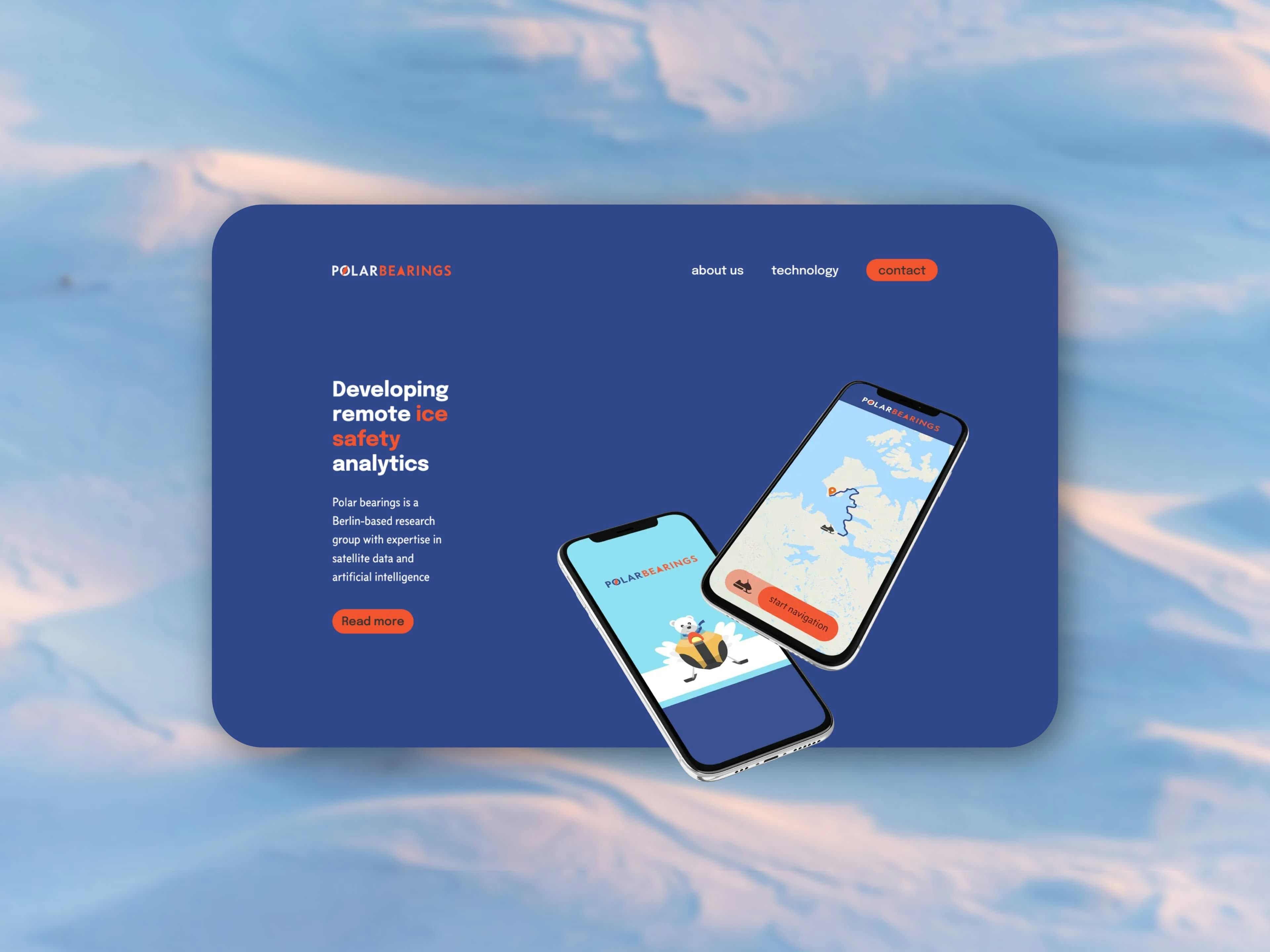Polar Bearings

I participated in the CASSINI hackathon in Berlin. The main theme of the design competition was to utilize space observation technology in designing solutions that could bring about positive changes for the Arctic region. During the event, I led a diverse team comprised of experts in machine learning, user experience design, business, and full-stack development. Our focus was the 'Life on Land' challenge, with a goal to lessen the impact of climate change on the inhabitants of the Arctic region.
Our contribution was Polar Bearings, an arctic navigation tool that leveraged machine learning and Copernicus satellite data to ensure safer travel over ice for polar communities. Throughout the design process, we paid special attention to involving the indigenous populace, respecting their cultural values and integrating their local knowledge. Our effort won us first place in Germany and second place in the Europe-wide finals. Subsequently, we received the opportunity to further refine our concept during a half-year mentoring program.
In the mentoring program, we collaborated with industry experts to develop our startup. We were mentored in both a technology and a business track, gaining valuable insights for developing our concept. Despite our best efforts and the tangible progress made, the startup ultimately had to be disbanded due to shifting priorities and insufficient funding. Nonetheless, our research and findings have been shared as open-source content, providing a beneficial resource for others.
The Polar Bearings project has been invaluable for my growth as a designer. I gained invaluable knowledge on startup formation, involving local users, devising business strategies, and building an application using Copernicus satellite data. Having led a team of professionals in this engaging project, I am excited about the potential role of designers in addressing complex challenges.